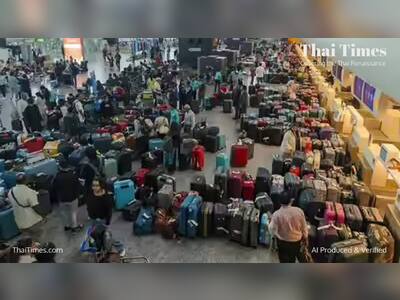Thailand's Board of Investment Unveils New Measures to Mitigate Impact of US Tariffs
Following the United States' announcement of a 36% reciprocal tariff on Thai imports, effective August 1, 2025, Thailand's Board of Investment (BOI) has accelerated its policy responses to address potential impacts on exports and investment. With the US accounting for 18% of Thailand's exports, the high tariff rate poses significant challenges for Thai competitiveness, especially compared to ASEAN peers like Vietnam, Malaysia, Indonesia, and Singapore.
The BOI's Secretary-General, NARIT THERDSTEERASUKDI, indicated that in the two months since the tariff hike was announced, the BOI held discussions with both domestic and foreign investors. As a result, it is rolling out a new policy package titled ‘Thai Enterprise Competitiveness Enhancement Measures for the New Global Era,’ focusing on enhancing operational efficiency and strengthening local supply chains.
The new initiatives comprise two main areas:
1. Strengthening Thai SMEs and Domestic Supply Chains
1.1 Enhanced Support for Thai SMEs to Improve Operational Efficiency
Thai SMEs will now receive increased tax incentives to invest in machinery upgrades, automation, digital technologies, and energy-saving measures. The new incentive structure includes:
- A five-year corporate income tax exemption, capped at 100% of the investment made in efficiency improvements, as opposed to the previous three-year exemption capped at 50%.
1.2 Promotion of Local Content in EV and Electronics Manufacturing
Companies in the electric vehicle (EV) and electronics sectors that utilize Thai-sourced materials certified by the Federation of Thai Industries' Made in Thailand (MiT) programme will benefit from an additional two-year 50% corporate income tax deduction. Eligibility is based on specific local content thresholds:
- Battery Electric Vehicles (BEVs): 40% of raw material value
- Plug-in Hybrid Electric Vehicles (PHEVs): 45%
- EV Components: 15%
- Household Electrical Appliances: 40%
2. Reducing Risk from US Trade Measures and Regulating Investment in Vulnerable Sectors
This involves three further sub-measures:
2.1 Tightening Scrutiny of Essential Production Processes
Industries vulnerable to US trade measures, including auto parts, electrical appliances, electronics, and certain light industries, will be subjected to stringent conditions. These include requirements for a significant transformation of raw materials into finished products, necessitating a change in customs tariff classification at least at the 4-digit level.
2.2 Regulating Investment in Selected Sectors
- Suspension of Promotion for Vulnerable Low-Tech Industries: The BOI will halt promotion for sectors such as solar panel manufacturing, vehicle accessories, and decorative parts, requiring majority Thai ownership for specific light industry projects unless in designated Special Economic Zones.
- Suspension of Promotion for Oversupplied Sectors: This includes all long steel products, hot-rolled steel, and thick steel plates, reflecting an assessment of excess supply.
- Environmental Regulations: Land ownership rights for industries like metal rolling and chemical production will be suspended, necessitating stricter supervision and location within industrial estates.
2.3 Revising Foreign Workforce Conditions
To promote local employment, companies with over 100 employees must hire at least 70% Thai nationals. Additionally, the BOI will implement minimum income thresholds for foreign personnel benefiting from BOI-related visa and work permit privileges, mandating executives to earn a minimum of 150,000 baht per month and experts 50,000 baht.
Beyond these measures, the BOI is poised to introduce further initiatives aimed at assisting businesses potentially impacted by the US tariff. Industries identified as critical for Thai exports to the US, including food processing, automotive parts, and electrical components, will be prioritized in these additional measures.











